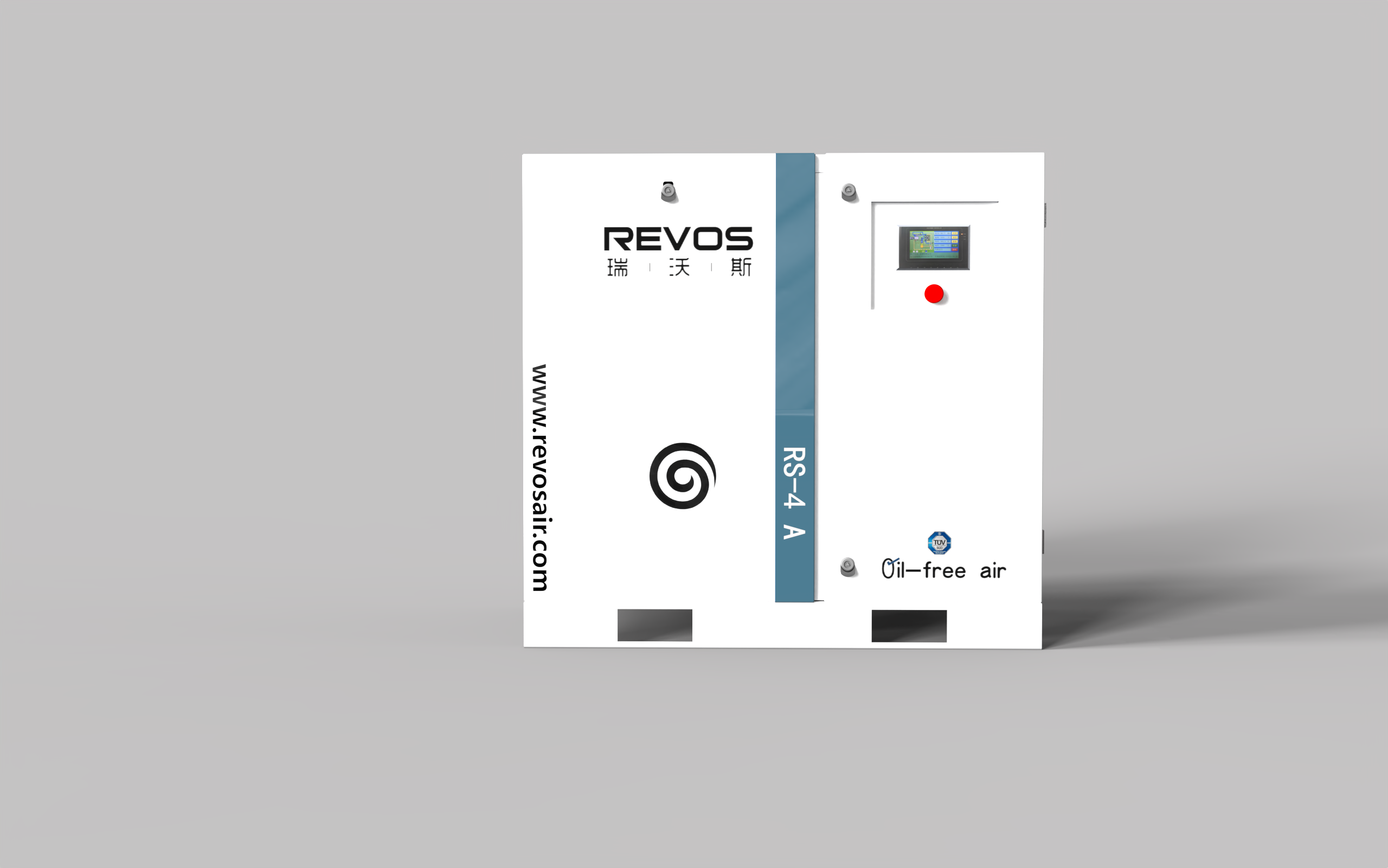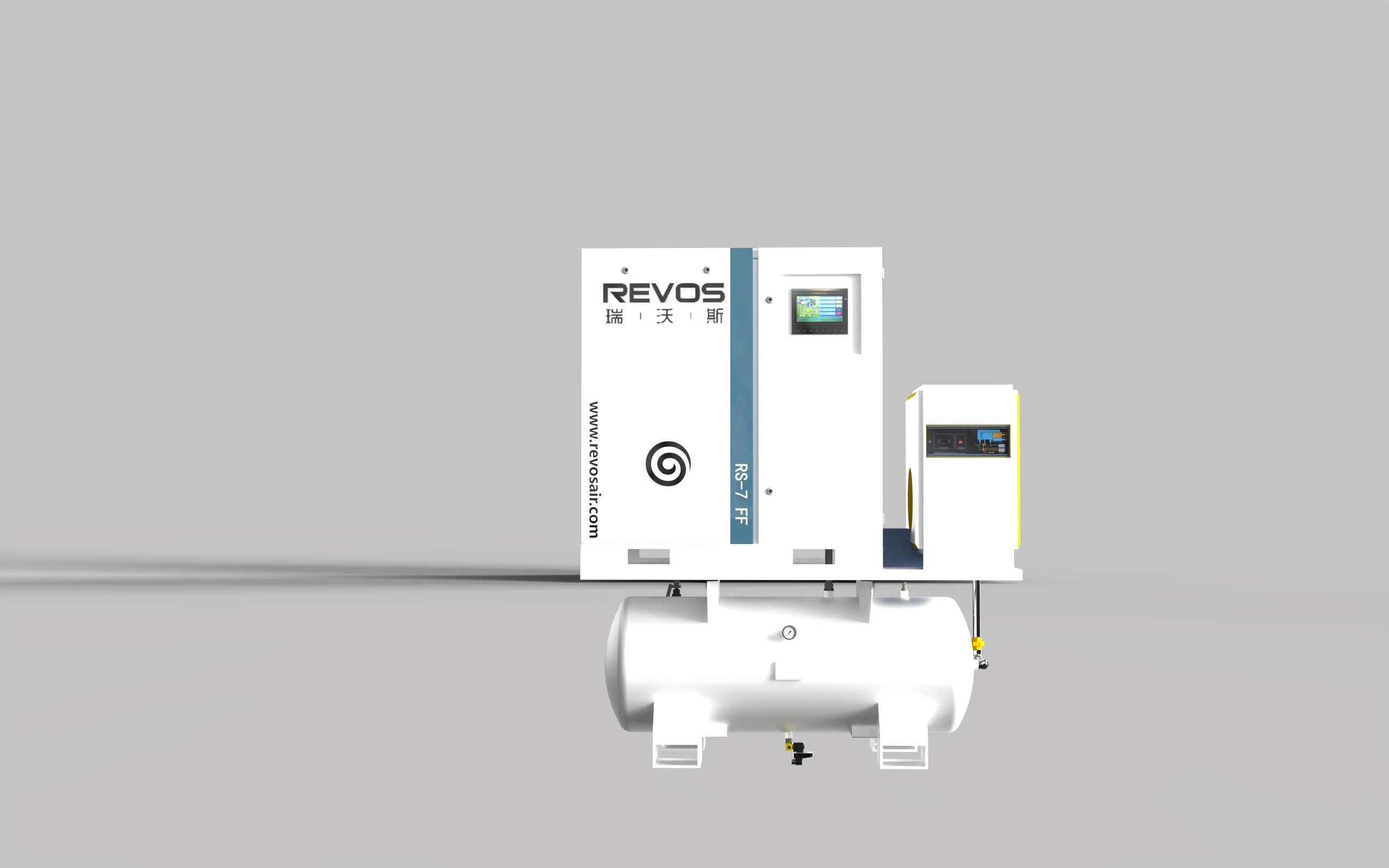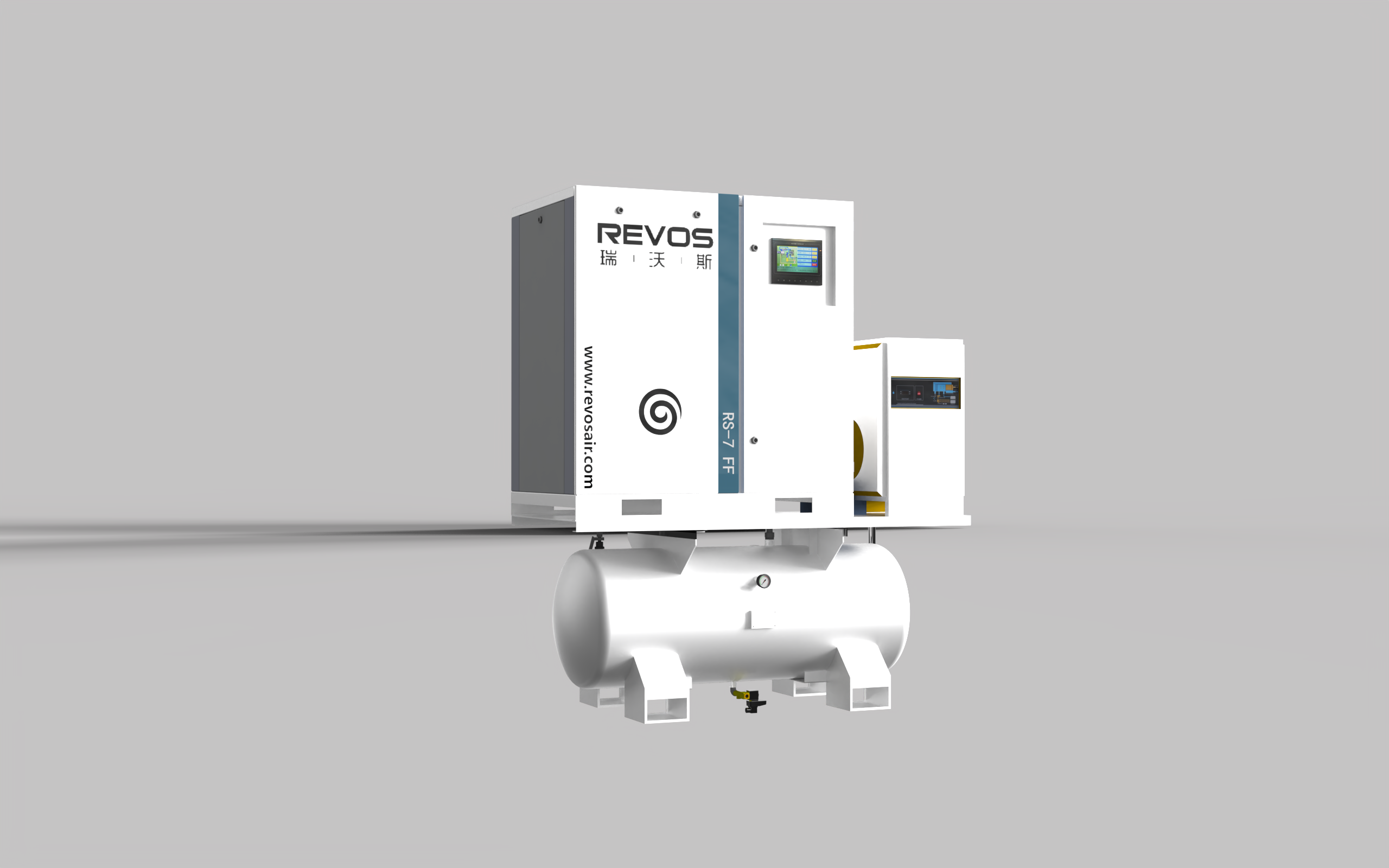As a seasoned industry professional with extensive experience evaluating compressed air solutions across healthcare, food processing, and semiconductor manufacturing sectors, I understand that selecting the right air compressor supplier is a critical decision with far-reaching operational implications. Equipment failure or non-compliance doesn't just disrupt operations—it directly impacts patient safety in healthcare, product integrity in food processing, and manufacturing yields in semiconductor production. This analysis draws on the latest market insights, technical specifications, and real-world applications to provide industry decision-makers with a structured framework for evaluating suppliers across these specialized sectors.
The Critical Role of Specialized Air Compressors in Regulated Industries
Specialized air compressors serve as the silent workhorses of modern regulated facilities. In healthcare, they power everything from ventilators and anesthesia machines to surgical tools and laboratory equipment. In food processing facilities, they ensure contamination-free production environments, while in semiconductor manufacturing, they maintain the ultra-clean conditions required for microchip production. Unlike general industrial compressors, these specialized systems must deliver exceptionally pure air with uninterrupted operation. Any compromise in quality or reliability can severely affect outcomes across these critical industries.

The global market for specialized air compressors is projected to grow significantly through 2033, driven by increased infrastructure investments and stricter air quality regulations across healthcare, food processing, and semiconductor manufacturing sectors. North America currently leads in adoption rates, with facilities prioritizing systems that meet the most rigorous purity standards. This growth makes it vital to select suppliers who can meet today's requirements and adapt to evolving technologies and regulations across these specialized fields.
Key Supplier Evaluation Criteria for Regulated Industries
When evaluating specialized air compressor suppliers, facilities in regulated industries must consider multiple factors that balance technical performance, regulatory compliance, operational reliability, and total cost of ownership. Based on industry best practices and recent market analysis, these factors are most critical:
Regulatory Compliance and Certification
Compliance with international standards is non-negotiable in regulated applications. The ISO 8573-1 standard establishes compressed air quality, with Class O certification representing the highest level of oil-free air purity—essential for medical, food, and semiconductor applications. Suppliers with TÜV Class O certification (ISO 8573-1 Class O) demonstrate commitment to these stringent standards.
Beyond general air quality standards, suppliers should comply with industry-specific regulations. Healthcare facilities require adherence to NFPA 99 and CSA standards, food processors need to meet FDA and USDA requirements, while semiconductor manufacturers must comply with SEMI standards. Reputable suppliers provide comprehensive compliance documentation and maintain transparent certification processes facilities can easily verify and audit.
Technical Performance and Reliability
Technical performance parameters directly impact a compressor's suitability for specialized applications. Key considerations include:
- Airflow capacity: Measured in cubic feet per minute (CFM), this must match facility peak demand while maintaining stable pressure.
- Pressure stability: Medical and semiconductor systems typically require consistent pressure with minimal fluctuation during high-demand periods.
- Contamination control: Systems need multi-stage filtration to remove particulates, water vapor, and microbial contaminants—critical for all three industries.
- Energy efficiency: Modern variable speed drive technology reduces energy consumption compared to traditional fixed-speed models.
Reliability metrics matter too—mean time between failures (MTBF) and mean time to repair (MTTR). Suppliers should provide verifiable data on these metrics, ideally supported by independent testing or third-party validation.
After-Sales Support and Service Capabilities
In regulated environments where downtime can compromise production or patient care, after-sales support quality differentiates suppliers. Leading providers offer comprehensive service programs including:
- Preventive maintenance schedules tailored to facility requirements
- 24/7 emergency support with guaranteed response times
- On-site technical support from factory-trained technicians
- Remote monitoring capabilities for predictive maintenance
- Spare parts availability to minimize repair times
Suppliers with specialized focus on regulated industries often provide more application-specific service expertise than general industrial manufacturers. Facilities should verify service network geographic coverage to ensure timely support, especially for remote or rural locations.
Comparative Analysis of Leading Supplier Approaches
While specific supplier rankings vary by industry needs, 2025 market analysis reveals distinct approaches among leading providers. These differences reflect priorities in technology development, service delivery, and application focus across medical, food, and semiconductor sectors.
Technology Specialization
Some suppliers focus on technologies tailored for specific regulated environments. This specialization addresses the critical need for contamination-free air in healthcare settings, product safety in food processing, and ultra-high purity requirements in semiconductor manufacturing, leading to breakthroughs in air quality and operational efficiency.
Larger industrial manufacturers often offer specialized versions of general-purpose compressors. While these may meet basic standards, they sometimes lack specialized features and industry-specific design considerations of dedicated systems.
Service Model Variations
Supplier service models range from basic warranty coverage to comprehensive performance guarantees. Progressive suppliers now offer outcome-based service agreements that tie compensation to system uptime and performance metrics. This shift aligns supplier interests with facility goals for reliable operation.
Regional service capabilities vary significantly. International suppliers maintain extensive networks in major markets but may struggle with response times in remote areas. Local or regional suppliers often provide more personalized service but may have limited resources for specialized technical support.
Application-Specific Solutions
Leading suppliers increasingly offer solutions tailored to specific industry requirements:

- Medical applications require high-capacity, redundant configurations with advanced monitoring and Class O air purity
- Food processing prioritizes stainless steel construction, easy cleaning, and compliance with food safety regulations
- Semiconductor cleanrooms demand ultra-high purity, precise flow control, and minimal particle generation
Suppliers demonstrate application expertise through industry events such as medical equipment expos, food processing technology shows, and semiconductor manufacturing conferences. These events let them engage directly with industry professionals and stay current with evolving facility needs.
Practical Selection Framework for Industry Decision-Makers
Based on industry best practices and recent case studies, facilities across regulated industries should implement a structured selection process with distinct phases:
Needs Assessment and Specification Development
Start with a comprehensive needs assessment considering:
- Current and projected air demand across all operational areas
- Pressure and flow requirements for specific equipment
- Space constraints and installation considerations
- Energy efficiency goals and sustainability targets
- Regulatory compliance requirements specific to your industry
This assessment should produce detailed technical specifications for supplier evaluation. Involve operational staff, engineers, and facility managers to ensure all perspectives are considered.
Supplier Prequalification
Use technical specifications to prequalify potential suppliers based on objective criteria:
- Demonstrated compliance with relevant standards (ISO 8573-1 Class O, FDA, SEMI, etc.)
- Experience with similar facility installations
- Availability of local service support
- Financial stability and industry reputation
Prequalification narrows the field to suppliers that can realistically meet requirements, reducing time and resources spent on later evaluation stages.
Technical Evaluation and Proposal Review
Invite qualified suppliers to submit detailed proposals addressing technical and commercial aspects. Technical evaluation should include:
- Equipment performance data compared to specifications
- System design documentation
- Compliance verification documentation
- Energy consumption projections
- Noise level measurements
- Maintenance requirements and schedules
Request references from similar installations, including contact information for facility managers who can provide insights into real-world performance and service experiences.
On-Site Demonstration and Testing
When feasible, arrange on-site demonstrations or testing of shortlisted systems. This may include:
- Performance testing under various load conditions
- Noise level measurements in typical installation configurations
- Maintenance procedure reviews
- Operator training evaluations
For critical systems, third-party testing by independent laboratories provides objective verification of supplier claims regarding performance and air quality.
Total Cost of Ownership Analysis
Final selection should consider total cost of ownership over the system's expected lifespan, not just initial purchase price. This includes:
- Energy consumption costs
- Maintenance and repair expenses
- Replacement part costs
- Service contract fees
- Training requirements
- Expected lifespan and residual value
Life-cycle cost analysis often reveals higher initial investments in efficient, reliable systems yield significant long-term savings compared to lower-cost alternatives.
Case Study: Specialized Oil-Free Technology Implementation in Pharmaceutical Manufacturing
The application of oil-free scroll compressor technology in a pharmaceutical manufacturing facility demonstrates the benefits of specialized air systems. This case study illustrates key considerations for facilities evaluating similar systems across regulated industries.

Challenge
A major pharmaceutical manufacturer needed to upgrade its compressed air system to meet evolving regulatory requirements for sterile drug production. The existing system had oil contamination issues despite multiple filtration stages, causing product quality concerns and increased maintenance costs.
Solution
After comprehensive evaluation, the facility selected oil-free scroll compressors based on ISO 8573-1 Class O certification and demonstrated pharmaceutical application performance. Implementation included:
- Three redundant oil-free scroll compressors configured for N+1 redundancy
- Integrated air treatment systems with advanced filtration and drying
- Real-time monitoring and control system with alerts for contamination or performance deviations
- Preventive maintenance program with remote monitoring capabilities
Results
After system commissioning and validation, the facility achieved:
- Consistent ISO 8573-1 Class O compliance, eliminating oil contamination issues
- 32% reduction in energy consumption compared to the previous system
- 47% reduction in maintenance costs due to simplified service requirements
- 99.98% system reliability with exceptional uptime in the first year of operation
- Enhanced process stability reducing product variability
This implementation shows how specialized oil-free technology addresses critical requirements in regulated industries while delivering operational and financial benefits.
Emerging Trends Shaping Future Supplier Evaluation
The specialized air compressor market continues evolving, driven by technology advances, regulatory changes, and new industry requirements. These trends will influence supplier evaluation criteria across healthcare, food processing, and semiconductor manufacturing in coming years:
Smart Monitoring and Predictive Maintenance
IoT integration enables more sophisticated compressor performance monitoring and predictive maintenance. Leading suppliers develop systems that identify potential issues before causing downtime, allowing planned maintenance that minimizes operational disruption.
Energy Efficiency and Sustainability
As facilities focus on reducing carbon footprints and energy costs, compressor efficiency becomes more important. Variable speed drive technology, heat recovery systems, and energy management software are becoming standard features in premium specialized air compressor systems.
Modular and Scalable Designs
To accommodate changing needs and phased expansion, modular compressor designs are gaining popularity across industries. These systems let facilities start with base capacity and add modules as demand increases, avoiding over-investment in underutilized equipment.
Enhanced Air Quality Monitoring
Beyond basic compliance, advanced systems now offer continuous air quality monitoring with real-time data logging and reporting. This provides better documentation for regulatory audits and greater confidence in air quality for critical applications across all regulated industries.
Conclusion: Making Informed Supplier Decisions for Operational Excellence
Selecting a specialized air compressor supplier impacts regulated facilities on multiple levels—daily operations, regulatory compliance, product quality, patient safety, and long-term financial performance. Following a structured evaluation process focusing on compliance, performance, reliability, and support helps facilities make informed decisions aligned with their specific industry needs and goals.
Successful supplier relationships in regulated industries feature transparency, technical expertise, and shared commitment to quality and compliance. Suppliers with specialized expertise demonstrated through industry participation, technological innovation, and compliance with highest standards are well-positioned to meet evolving needs of modern facilities.
As regulated industries advance, reliable, high-quality compressed air systems will only grow more important. Facilities that invest time in selecting the right supplier partnership today will better adapt to future challenges and maintain the highest standards for their operations.
